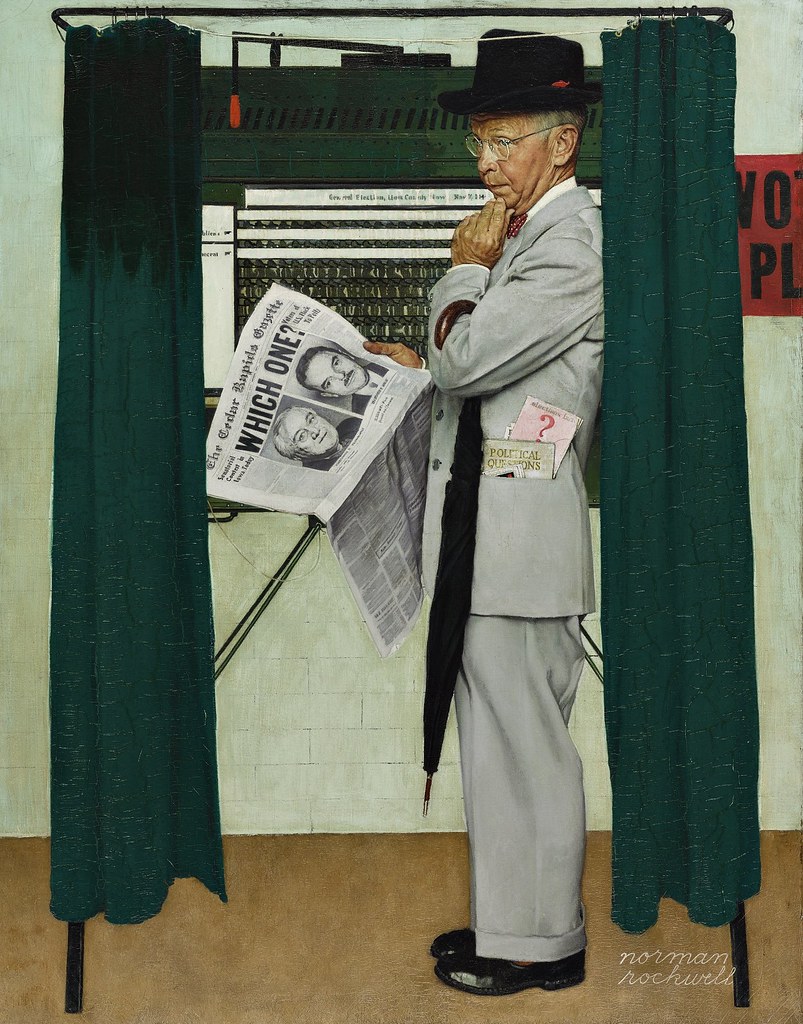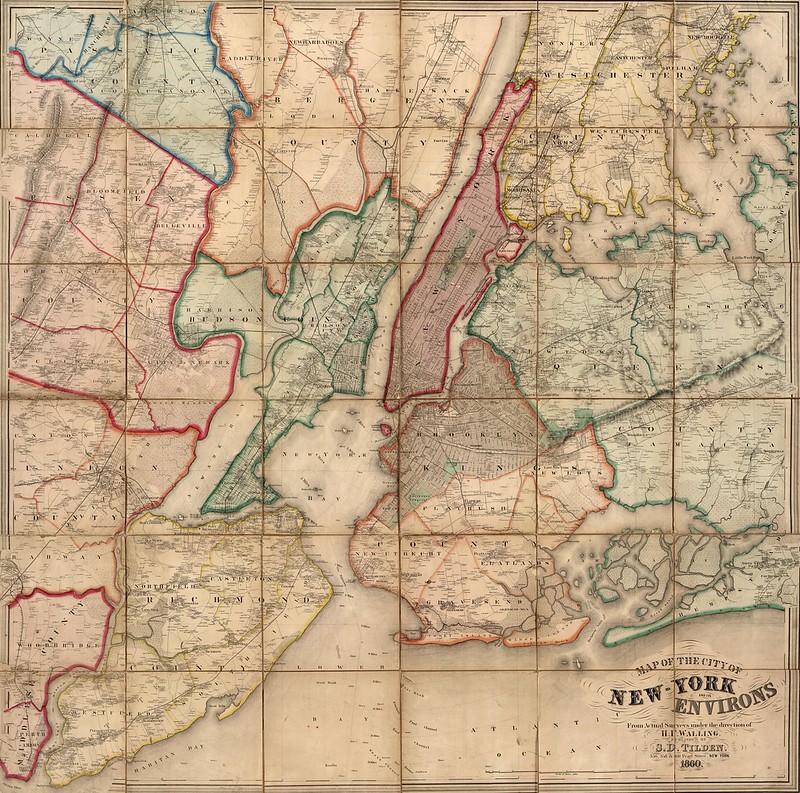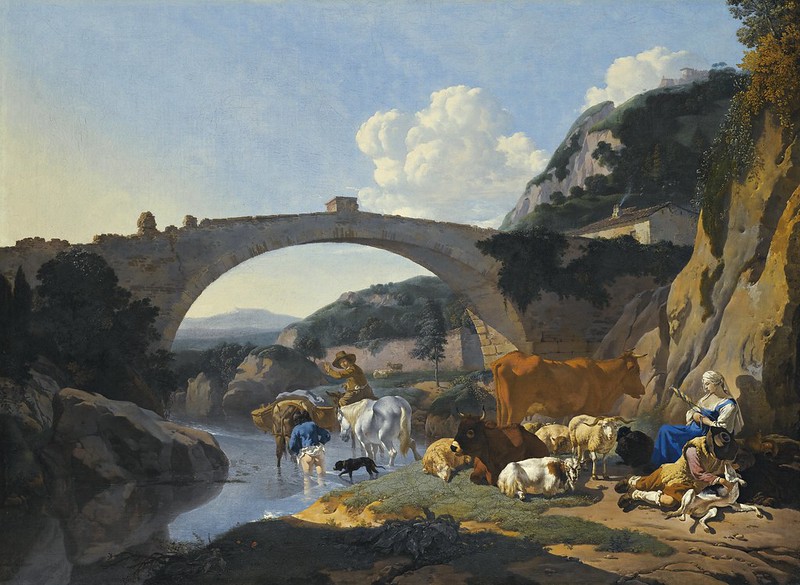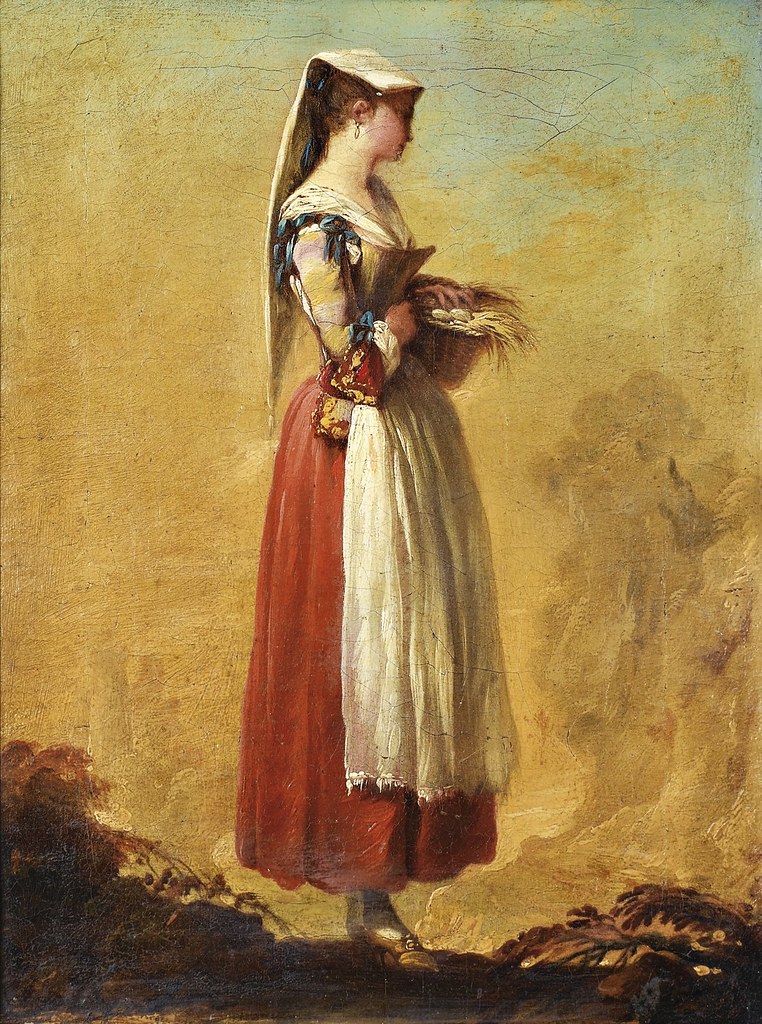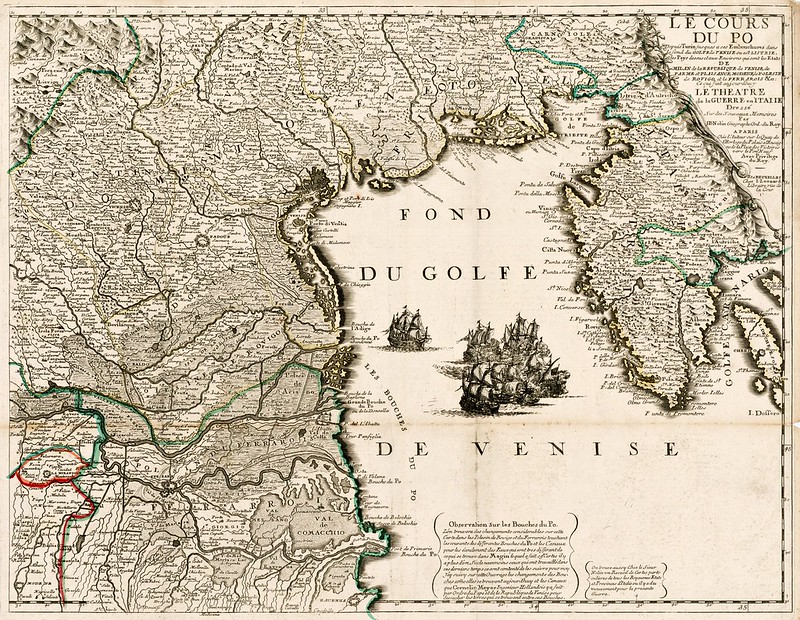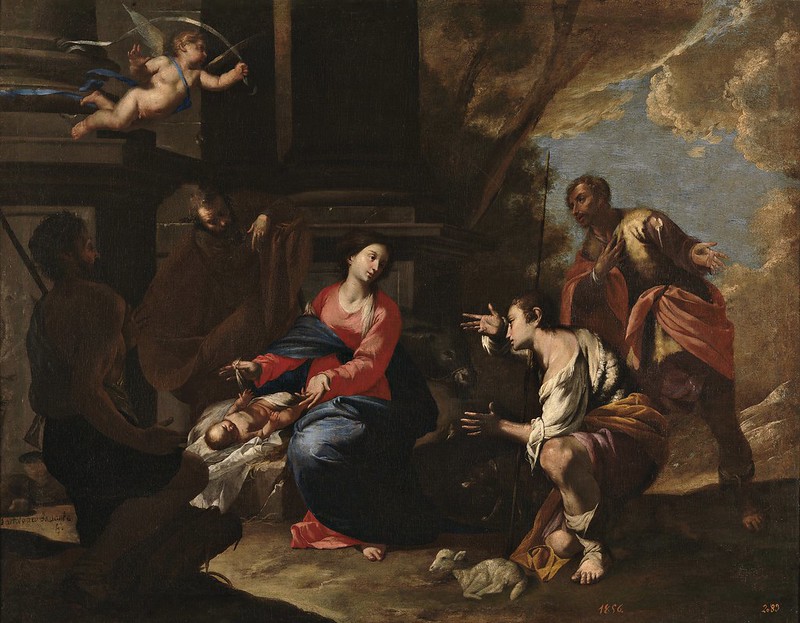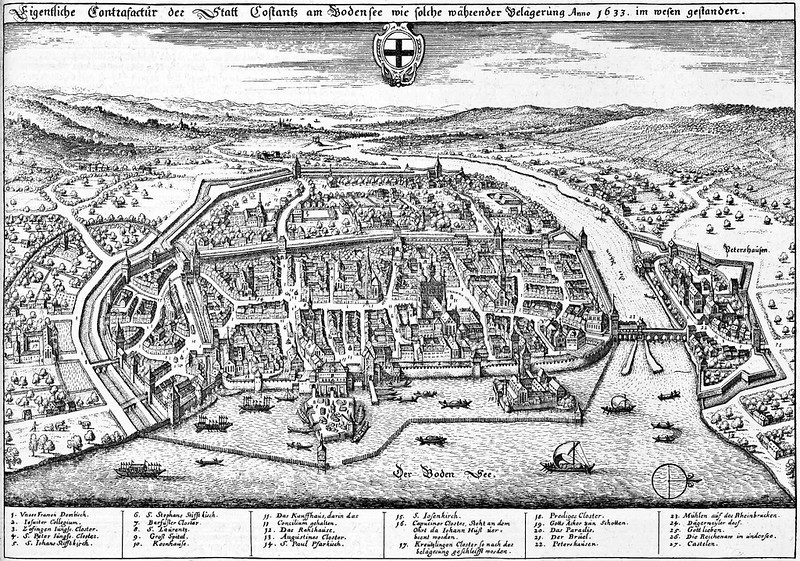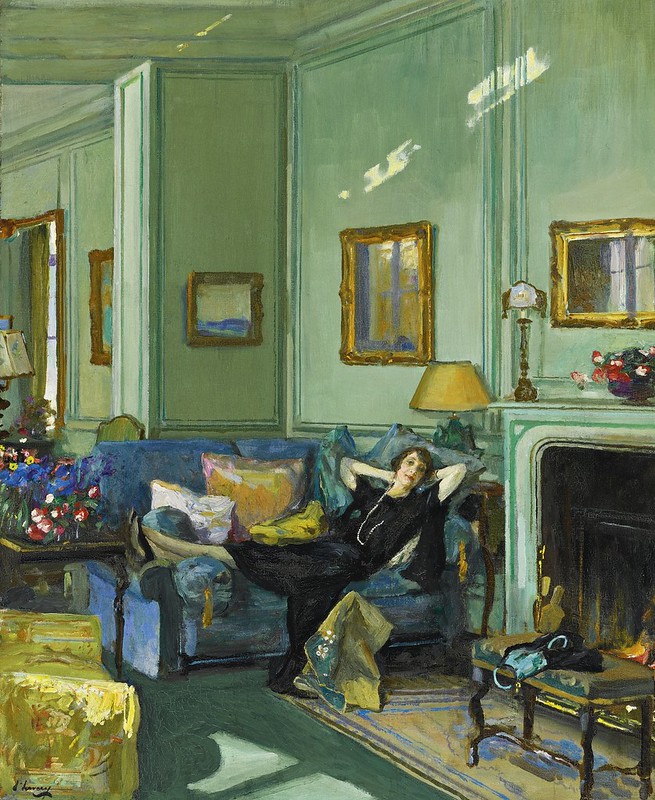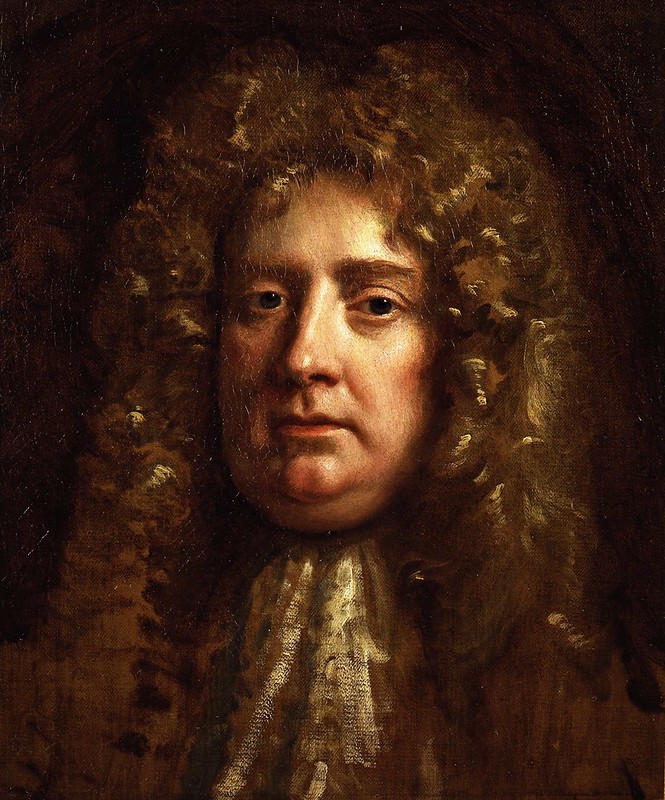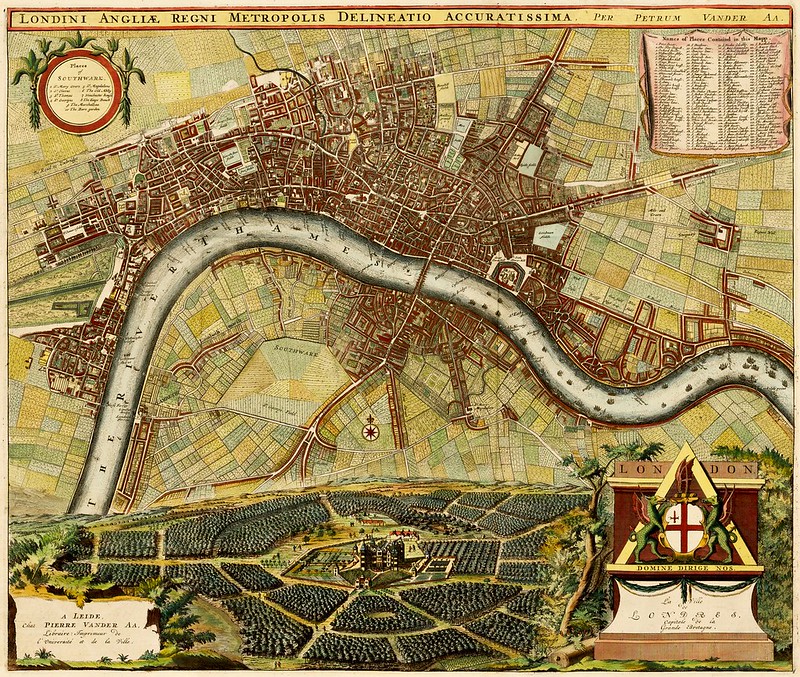John Blow (
Collingham, bap. 23 de febrer de 1649 -
Westminster, 1 d'octubre de 1708) va ser un organista i compositor anglès. Es creu va rebre formació al Magnus Song School de Nottinghamshire abans d'entrar, el 1660, com a cantant del cor de la
Capella Reial. El 1668 i finalitzada la seva formació, va ser nomenat organista de la
Westminster Abbey i un any després va ser nomenat membre dels
musicians for virginals del rei. El març de 1674 va jurar com a cavaller de la Capella Reial en la qual va assolir el càrrec de
master of the children, lloc que va preservar la resta de la seva vida. Allà va tenir desenes d'alumnes entre ells
Henry Purcell. El 1677 va ser nomenat organista de la Capella Reial en un any en què també va rebre el doctorat de música de Canterbury. El 1679 va cedir a Purcell el seu lloc d'organista a la Westminster Abbey si bé després de la mort de Purcell el 1695 va tornar a ocupar el càrrec. El 1680 va compondre
Venus and Adonis, la que seria considerada com la primera òpera anglesa en una època, entre els anys 1680 i 1700, considerada la més productiva de la seva carrera. El 1687 va assolir el càrrec de
master of the children de la
Catedral de Sant Pau i el 1699 va ser nomenat primer compositor de la Capella Reial. John Blow, després d'anys de domini musical compartit amb Purcell, va morir a Westminster l'octubre de 1708.
OBRA:
Vocal secular:
Dramatic:
Venus and Adonis (masque for the entertainment of the king, ?1683), Lbl, Lwa, Och, ed. A. Lewis (Monaco, 1949)
Court odes:
dating is that given by McGuinness (1965), with some emendations
‡ – song pubd in Amphion Anglicus (London, 1700/R)
Dread sir, the prince of light (New Year’s Day), 1678, A, T, B, SATB, 2 vn, va, bc, GB-Lbl
The birth of Jove (king's birthday), 1678, S, A, T, B, SATB, 2 vn, va, bc, Lbl
Great Janus (New Year's Day), 1679, S, S, A, T, B, SSATB, 2 vn, va, bc, Lbl
The new year is begun (New Year's Day), 1680, A, T, B, SATB, Lbl
Great Sir, the joy of all our hearts (New Year's Day), 1681, A, T, B, SATB, 2 vn, va, bc, Bu
Up, shepherds, up (king's birthday), 1681, A, T, B, B, SATB, bc, Ob
Arise, great monarch (J. Allestry) (New Year's Day), 1682, S, S, A, A, T, B, SATB, 2 vn, va, bc, Bu
Dread Sir, Father Janus (New Year's Day), 1683, S, A, A, T, B, SATB, 2 vn, va, bc, Bu
My trembling song, awake (T. Flatman) (New Year's Day), 1684, S, A, T, B, SATB, 2 vn, va, bc, Ckc, ed. A.H. Mann (London, 1901), ‡Rise mighty monarch, ed. in The Old English Edition, xxiii (London, 1900)
How does the new-born infant year (New Year's Day), 1685, S, A, T, B, SATB, 2 vn, va, bc, Lbl
Hail monarch, sprung of race divine (New Year's Day), 1686, A, T, B, SATB, 2 vn, va, bc, Lcm; ‡Make bright, [Till then] make bright your warrior's shield, 2vv
Is it a dreame (New Year's Day), 1687, A, T, B, SATB, 2 vn, va, bc, Lcm; ‡Arms, arms he delights in
Ye sons of Phoebus (New Year's Day), 1688, A, A, T, B, SSATB, 2 rec, 2 vn, va, bc, Lcm
With cheerful hearts (T. Shadwell) (New Year's Day), 1690, S, S, A, T, B, B, SSATB, 2 rec, 2 vn, 2 va, bc, Lcm
Behold, how all the stars give way (T. D'Urfey) (New Year's Day), 1692, music lost
Welcome, welcome, genial day, king's birthday, 1692, ?S, S, B, SATB, tpt, ?ob, 2 vn, va, bc, Lbl†
The happy, happy year is born (N. Tate) (New Year's Day), 1693, ?A, A, T, B, SATB, 2 vn, va, bc, ABu (frag.); Thus let departing winter sing, song, Gentleman's Journal (Dec 1692)
Sound, sound the trumpet (P. Motteux) (New Year's Day), 1694, ?A, T, SATB, 2 vn, va, bc, ABu (frag.); 2 songs pubd: He leaves, he slights his precious rest, Gentleman's Journal (Jan/Feb 1694), ‡The sullen years are past
Hail, thou infant year (New Year's Day), ?1697, S, S, A, A, B, SAAB, 2 vn, va, bc, Lgc
The nymphs of the wells (birthday of Duke of Gloucester), 1697, S, S, A, T, B, SSATB, 2 vn, va, bc, Lgc
Music now thy charms display (Tate) (New Year's Day), 1698, music lost
Welcome, welcome, happy day (?Tate) (king's birthday), ?1699, Lbl†
Appear in all thy pomp (Tate) (New Year's Day), 1700, A, T, B, SATB, 2 vn, va, bc, Lcm
Come, bring the song (birthday of Princess Anne), 1700, S, A, T, B, SATB, tpt, 2 vn, va, bc, Ob
Welcome, welcome, glorious day (birthday of Princess Anne), ?1701, S, B, SATB, tpt, kettledrum, 2 vn, va, bc, Lcm, collab. D. Purcell
Lost:
for New Year's Day, 1691, Whilst he abroad likes the sun, song, Ye great defenders of the faith, chorus, ed. J.S. Smith, Musica Antiqua, ii (London, 1812);
for the king's birthday, 1691, ‡Oh! when [But oh], ye pow'rs, when must his labours cease;
for the Duke of Gloucester's birthday, 1696/7/9, And now the duke's march let the hautboy's play, song, 169510, ‡A prince so young
Odes for other occasions:
‡ – song pubd in Amphion Anglicus (London, 1700/R)
Awake, awake, my lyre (A. Cowley) (Oxford Act), before 1678, S, B, SSTB, 2 vn, bc, GB-Lbl, ed. H.W. Shaw (London, 1941/R); Awake, awake, my lyre, song, 16814
Diva quo tendis (Oxford Act), 1678–9, S, S, A, T, B, SATB, 2 vn, va, bc, Ob
Begin the song (J. Oldham) (St Cecilia's Day), 1684, S, A, T, B, SATB, 2 vn, va, bc, pubd as A Second Musical Entertainment (London, 1685), ed. H.W. Shaw (London, 1950); ‡Musick's the cordial, with 2 vn
The glorious day is come (St Cecilia's Day), 1691, S, A, T, B, SATB, 2 tpt, kettledrum, 2 ob, tenor ob, 2 rec, 2 vn, va, bc, Lgc, ed. M. Bevan (London, 1981); ‡Ah heav'n! what is't I hear, 2vv, ed. A.C. Lewis, Three Songs from ‘Amphion Anglicus’ (Paris, 1938), ‡Couch'd by the pleasant Heliconian spring, 2vv
Dum pulsa strident timpana (with final chorus of Non arma regum) (Oxford Act), c1695, S, S, A, T, B, SSAATTBB, 2 vn, vc, bc, Och
Great quire of heaven (St Cecilia's Day), 1695, S, S, A, A, T, B, SSATB, 2 tpt, 2 ob, 2 rec, 2 vn, va, bc, Lgc
Non arma regum (Oxford Act), c1695, S, S, A, T, B, B, SSAATTBB, Och
Bring, shepherds bring the kids (?for a wedding), c1695–1700, A, B, SATB, 2 tpt, 2 rec, 2 vn, va, bc, Lgc, ed. H.W. Shaw and W. Bergmann (London, 1954); ‡Bring, shepherds, bring the kids/The rites are perform'd, 2 vv, ‡Sing, ye muses, 4vv 2 vn, bc
Welcome, welcome, every guest (for a non-Cecilian ‘music feast’), c1695–1700, T, B, SATB, 2 tpt, 2 rec, 2 vn, va, bc, Lbl; ‡Welcome, welcome, every guest, arr., S, 2 rec, 2 vn, bc
Triumphant fame (St Cecilia's Day), 1700, S, S, A, T, B, SATB, 2 tpt, 2 rec, 2 vn, va, bc, Lcm
Secular songs:
for solo voice unless otherwise stated
‡ – pubd in Amphion Anglicus (London, 1700/R)
Edition:John Blow: 10 Songs for High Voice, ed. M. Pilkington (London, 1979) [P]
Ah me! undone, GB-Lbl
Alexis, dear Alexis (T. Flatman), 1684
All my past life (The True Constancy; J. Wilmot, Earl of Rochester) 1685
Amintor on a riverside, 1683
‡And is my cavalier return'd?, with 2 rec
As Celadon and Chloris, 1679
Ask not the cause why sullen spring (J. Dryden), 1699
As on his deathbed gasping Strephon lay (Elegy on the Earl of Rochester; Flatman), 1681
‡As [Whilst] on Septimius' panting breast (A. Cowley), 2vv, 2 vn, bc, 1685
‡At looser hours in the shade (Horace to his lute)
Boasting fops who court the fair (P. Motteux), Gentleman's Journal (Sept 1692), P
Born with the vices of my kind (T. D'Urfey), 1689
Bring my mistress, 1689
‡Chloe found Amintas (D'Urfey), 3vv, 1695
Church scruples and jars (D'Urfey), Songs Compleat, Pleasant and Divertive (London, 1719)
Clarinda's heart is still the same, Cfm
‡Clarona, lay aside your lute, ed. A. Lewis, Three Songs from ‘Amphion Anglicus’ (Paris, 1938), P
‡Come fill the glass, 2vv
Come, poetry, and with you bring along, 3vv, 1688
Could softening, melting looks prevail, 1687
Draw out the minutes twice as long, 1683
‡Employ'd all the day still in public affairs, for the Music Society, 2vv
Euridice, my fair (Flatman), 2vv, 1688
Fain would I, Chloris, ere I die, 1683, P
Fairest work of happy nature, 1689
Fair lady, so strong are the charms, 1678
Fair nymph, that to the wanton winds, 3vv, Och
Farewell, my useless scrip, 1699
Fill me a bowl, a mighty bowl (J. Oldham), 1687
For honour and glory the soldier prepares, 1691
‡Go, perjur'd maid, 2vv
‡Go, perjur'd man (R. Herrick), 2vv, 2 vn, bc, 1683
Grant me, ye gods, the life I love (Cowley), 1688, P
Great Queen of Love, behold, 3vv, Lbl
‡Happy the man who, languishing (Sappho to the Goddess of Beauty)
How I have serv'd (Colonel Salisbury), with chorus a 3, 1687
If I live to be old (W. Pope), 1685
‡If I my Celia could persuade (G. Etherege), 2vv, ed. M. Tippett and W. Bergmann (London, 1963)
‡If mighty wealth, 1686
I little thought (Cowley), 1687
I'll tell thee, my Celia, 1681
Illustrious day, what glory canst thou boast (queen's birthday), Ckc
In Caesar all the joint perfections meet, Ge
In vain, brisk God of Love, 2vv, 1683
‡It grieves me when I see what fate, with vn
‡It is not that I love you less (The Self-Banish'd; E. Waller), ed. in The Old English Edition, xxiii (London, 1900), P
‡Lately on yonder swelling bush (The Bud; Waller), 2vv
Leave to him all our cares, 1687
Let equipage and dress despair, 1683
Let us drink to the well-wishers, 2vv, 1685
Long by disdain has Celia strove (Ousley), 2vv, sung in The Lucky Chance (A. Behn), 1687, 1685
Lovely Selina, sung in The Princess of Cleve (N. Lee), 1689, 1683
‡Lysander, I pursue in vain (A Mad Song)
Mark how the lark and linnet sing (Dryden), 2vv, 2 rec, 1696, pubd as An Ode on the Death of Mr Henry Purcell (London, 1696)
Mighty Sir, 'tis you alone (king's birthday), Lbl
‡Morpheus, the humble god (J. Denham), 2vv
No, Lesbia, no, you ask in vain, 1695
No, Lucinda, I swear, 3vv, Och
No more the dear, the lovely nymph (Motteux), Gentleman's Journal (Oct 1692)
‡Of all the torments, P
O love, that stronger art than wine, sung in The Lucky Chance (Behn), 1687, 16875
‡O Nigrocella (The Fair Lover and His Black Mistress; G. Herbert), 16916, ed. in The Old English Edition, xxiii (London, 1900)
‡Orethea's bright eyes, 2vv
‡O turn not those fine eyes away
‡O Venus, daughter of the mighty Jove (Sappho to the Goddess of Love)
‡Philander, do not think of arms (Myrtilla to Philander Designing for Flanders), 16995, P
Phyllis, accept a broken heart, 1683
Phyllis, I must needs confess, 1687
Pleasures by angels unenjoy'd, 1685
‡Poor Celadon, he sighs in vain (Loving Above Himself), with 2 vn, bc
Poor Mariana long in vain, Cfm
‡Prithee die, and set me free (Kellsea Coom; J. Denham), 2vv
Return, fair princess of the blooming year, 1687
‡Sabina has a thousand charms, ed. A. Lewis, Three Songs from ‘Amphion Anglicus’ (Paris, 1938)
Shall all the buds, 2vv, chorus, Lbl
She, alas, whom all admir'd, is dead, 1687
‡Shepherds, deck your crooks, 3vv, ed. in The Old English Edition, xxiii (London, 1900)
Shot from Orinda's brighter eyes, 1685
Since the Spring comes on, 1687
Stay, gentle Echo, 2vv, Lbl
Strife, hurry, and noise, 1685
Stubborn church division (D'Urfey), Songs Compleat, Pleasant and Divertive (London, 1719)
‡Tell me no more you love, P
Tell my Strephon that I die, sung in The Loyal General (N. Tate), 1680, 1683
The great Augustus like the glorius sun (D'Urfey), with chorus a 2, sung in The Royalist (D'Urfey), 1682, 1683
The world was hush'd (D'Urfey), 1691
Thou flask once fill'd with glorious red, sung in The Committee (R. Howard), ?1697, Gentleman's Journal (Feb 1693)
Though the [our] town be destroy'd (D'Urfey), 1688
Tired with destroying, Lbl
'Tis not my lady's face (A. Brome), 1679
‡To me you [y'ave] made a thousand vows, 2vv, sung in The Rival Sisters (R. Gould), 1696
Vain are thy charms, fair creature, 1686
We all to conqu'ring beauty bow (The Perfection; D'Urfey), 1685, P
Weep, all ye nymphs, sung in The Princess of Cleve (Lee), 1689, 1685
‡What is't to us who guides the state?, sung in The History of Adolphus (C. Howe), 1691, ed. in The Old English Edition, xxiii (London, 1900), P
‡When artists hit on lucky thoughts, 2vv
‡Whence, Galatea, why so gay?, a complaint that Princess Anne's birthday was not celebrated, 1698, 2vv
When from the old chaos, 1688
‡When I drink my heart is possesst (Sir Robert Howard), 2vv, 1687
‡Whilst on your neck no rival boy (A Dialogue Between Horace and Lydia), 2vv
Whilst our peaceful flocks, 2vv, Cfm
Whilst you vouchsafe your thoughts to breathe, 1695
‡Why does my Laura shun me? (The Grove)
Why does the morn in blushes rise? (D'Urfey), 1683
‡Why, Flavia, why so wanton still? (Flavia Grown Old), ed. in The Old English Edition, xxiii (London, 1900)
‡Why is Terpander pensive grown?, on the burning of Whitehall Chapel, 1698, 2vv
‡Why weeps Asteria? (Herbert), 1688
Will fair Panthea's cold disdain?, 2vv, 1688
You, whom cruel Sylvia charms (Motteux), Gentleman's Journal (July 1694)
You wrong me, Sylvia, when you cry (‘M.L.M.’), Gentleman's Journal (March 1693)
Catches:
Although Jolly Tom, 3vv 1685, sometimes attrib. Aldrich, probably by Blow
Come hear me, my boy, 3vv, Supplement of New Catches to the Pleasant Musical Companion, ii (London, 1702) doubtful
Come, here's a good health to Prince Lewis (G. Herbert) (Battle of Heilbronn), 1701, 3vv, The Pleasant Musical Companion, ii (London, 1701)
Fie, I prithee, John, 3vv, GB-Cfm
God preserve His Majesty (The King's Health), 3vv, 1685
Here are [is] the rarities [rarity] of the whole fair (Second Part of Bartholomew Fair; D'Urfey), 4vv, 1685
How shall we speak thy praise, delicious bowl? (In Praise of the Punch Bowl), 3vv, 1686
I knew [know], brother tar (Battle of la Hogue), 1692, 3vv, 1695
I'll tell my mother, my Jenny cries (Kind Jenny), 3vv, 1678
In a cellar in [at] Sodom (D'Urfey), 3vv, The Pleasant Musical Companion, ii (London, 1701)
Joan has been galloping, 3vv, 1673
Joan, Joan, for your part, 3vv, Cfm
John asked his landlady (John the Miller), 1685, music as for Here are the rarities
Ring the bells, and the glasses pull away, on the king's return from Flanders, 1701, 3vv, The Pleasant Musical Companion, ii (London, 1701)
'Uds nigs! here ligs [lies] John Degs (A Yorkshire Epitaph on Two Abbey Lubbers), 3vv, 1685
We've rais'd an army, 4vv, Lbl
Vocal religiosa:
Services:
Edition:Cathedral Music, ed. W. Boyce (London, 1760–73) [B]
In A (TeD, Bs†, Jub, re, Cr, CanD, DeM, Mag†, Nunc†), GB-Cfm Mus.116†, Mus.117, B
In C (TeD, Jub, Cr, Mag†, Nunc†), Cfm†, Ob
In D (TeD, Jub), 1695, with tpts, str, Lbl
In D (TeD†, Jub†, San, Gl, Mag†, Nunc†), Cfm†; San, Gl, ed. in The Choir and Musical Record, xvii (1874)
In e (TeD, Bte, Jub, re, Cr, CanD, DeM), Cfm, (without Bte) B
In G (TeD, Bs, Jub, re [3 settings], Cr [3 settings], San [2 settings], Gl [2 settings], Mag [2 settings], Nunc [2 settings], CanD, DeM), Och, Lbl; Mag, Nunc (full with verse), ed. H.W. Shaw (London, 1941)
Short services with chants to Venite: a (TeD, Jub, Mag, Nunc); d (TeD, Jub, Mag, Nunc), Mag, Nunc, ed. H. Statham and H.W. Shaw (London, 1958); F (TeD, Bs, Mag, Nunc), Mag, Nunc, ed. H.W. Shaw (London, 1971); g (TeD, Bs, Mag, Nunc), Cfm†, Lbl
[Evening service in B , verse, Lbl, attrib. Blow by W.H. Husk in Add.33288, is by Tudway]
Anthems:
verse unless otherwise stated
Editions: Cathedral Music, ed. W. Boyce (London, 1760–73) [no syms. or ritornellos] [B]Harmonia Sacra, ed. J. Page (London, c1800) [P]John Blow: 14 Full Anthems, ed. H.D. Statham (London, 1925) [S]John Blow: Coronation Anthems and Anthems with Strings, ed. A. Lewis and H.W. Shaw, MB, vii (1953/R) [LS]John Blow: Anthems II: Anthems with Orchestra, ed. B. Wood, MB, l (1984) [W i]John Blow: Anthems III: Anthems with Strings, ed. B. Wood, MB, lxiv (1993) [W ii]A Blow Anthology: 8 Anthems, ed. D.S. King (Oxford, 1996) [K]John Blow: Anthems IV: Anthems with Instruments, ed. B. Wood, MB, lxxiii (forthcoming) [W iii]
And I heard a great voice, A, T, B, B/SATB, 2 vn, va, bc, org, LS, adapted as I was in the spirit
Arise, O Lord, A, T, T, B/SATB, 2 vn, va, bc, org, W ii
Ascribe unto the Lord (2p. of O sing unto the Lord a new song, sing unto the Lord)
Awake, awake, utter a song (Battle of Blenheim), 1704, A, T, B/SATB, lute, org, GB-Cfm
Behold, now praise the Lord, B/SSATB, org, Ckc
Behold, how good and joyful, A, T, B/SATB, org, Cfm
Behold, how good and joyful (Act of Union with Scotland), 1707, music lost, collab. Croft and Clarke
Behold, O God our defender (coronation of James II), 1685, full, SSATB, org, LS
Behold, O God our defender (as above, but adapted for coronation of William and Mary), 1689, full, SATB, org, LS
Be merciful unto me, A, T, B/SATB, org, US-AU
Be merciful unto me, full with verse, SATB/A, T, B, org, GB-Cfm†, Ob, S
Blessed be the Lord my strength (g), S, B/SSAATTBB, org, Lbl, US-AU
Blessed be the Lord my strength (D), A, T, B/SATB, org, GB-Cfm
Blessed is the man that feareth the Lord (Festival of the Sons of the Clergy), 1698, A, A, T, T, B, B/SATB, 2 tpt, 2 vn, va, bc, org, Wiii
Blessed is the man that hath not walked (C), A, A, B, B/SATB, 2 vn, va, bc, org, Wi
Blessed is the man that hath not walked (d) (Battle of Ramillies), 1706, T, B/SATB, lute, org, Ob
Bow down thine ear, O Lord, full with verse, SATBB/S, A, T, B, B, org, Cfm†, Ob, S
Bring unto the Lord, O ye mighty, S, S/SATB, org, Lgc, Mp†
Christ being raised from the dead, S, A, T, B/SATB, org, Cfm
Consider mine enemies: pt of Turn thee unto me
Cry aloud, and spare not, T, T, B/SATB, 2 vn, va, bc, org, Wii
Deliver me from blood-guiltiness, for King Charles the Martyr's Day, A, bc, Ob, added to Humfrey's Have mercy upon me
God be merciful to us, Y†
God is our hope and strength (C), B, B/SATB, org, Ob
God is our hope and strength (C), A, A, B, B/SATB, org, Lbl
God is our hope and strength (A), full with verse, SSAATTBB/S, S, A, A, T, T, B, org, Cfm, B, ed. H. Statham (London, 1931)
God spake sometime in visions (coronation of James II), 1685, full with verse, SSAATBBB/S, S, A, A, T, B, B, B, 2 vn, va, bc, org, LS
Hear my voice, O God (discovery of Rye House Plot), 1683, A, T, B, B/SATB, 2 vn, bc, org, W iii
How doth the city sit solitary, A, T, B, org, Och
I beheld, and lo! a great multitude, A, T, B, B/SATB, 2 vn, va, bc, org, W iii
I beheld, and lo, in the midst of the throne, A, T, B, B/SATB, 2 vn, va, bc, org, Ckc, W iii
In the time of trouble, full with verse, SATB/A, T, B, org, Cfm†, Ob, S
I said in the cutting off of my days, A, T, T/SATB, 2 vn, va, bc, org, LS
I waited patiently (incl. Let them be desolate), S, S/SATB, org, Lbl
I waited patiently (variant, incl. But let all those), S, S/SATB, org, Ob
I was glad (consecration of the chancel of St Paul's Cathedral), 1697, A, A, T, T, B/SATB, 2 tpt, 2 vn, va, bc, org, Wi
[I was glad, attrib. Blow in Cu Ely 6, is by Purcell]
I was in the spirit (adaptation of And I heard a great voice), B
I will alway give thanks unto the Lord (The Club Anthem), A, T, B/SATB, 2 vn, va, bc, org, ed. in MB, xxxiv (1972), collab. Humfrey and W. Turner
I will call upon the Lord, Fast Day, 19 Jan 1704, A, T, B/SATB, org, Lcm
[I will cry unto God, doubtful, attrib. Blow by W.H. Husk, Lbl Add.33291)]
I will cry unto thee, T/SATB, org, Och
I will hearken, T, B, B/SATB, 2 vn, va, bc, org, W ii
I will magnify thee, music lost, words in J. Clifford: The Divine Services and Anthems (London, 2/1664)
I will praise the name of God, full with verse, SATB/S, S, A, T, B, org, Cfm†, Ob, S
Jesus, seeing the multitudes, A, A, T, B/SSATB, org, Och
Let my prayer come up (coronation of William and Mary), 1689, full, SATB, org, LS
Let the righteous be glad, A, A, T, B/SATB, lute, org, Cfm
Let thy hand be strengthened (coronation of James II), 1685, full, SATB, org, LS
Lift up your heads, S, S, A, T, B, B/SATB, 2 vn, va, bc, org, W iii, ed. H.W. Shaw (London, 1970)
[Lift up your heads (a), attrib. Blow in Cfm Mus.117, is by Humfrey]
Look upon mine adversity: pt of Turn thee unto me
Lord, how are they increased, T, T/SATB, org, Cfm Mus.152†, Mus.117
Lord, rebuke me not, music lost, words in J. Clifford: The Divine Services and Anthems (London, 2/1664)
Lord, remember David (opening of Whitehall Chapel), 1698, S, A, A, T, B/SAATB, org, Mp†, Lbl
Lord, thou art become gracious, full, SATB, org, K
[Lord, thou hast been gracious, doubtful, Lbl Add.31444]
Lord, thou hast been our refuge, music lost, words in J. Clifford: The Divine Services and Anthems (London, 2/1664)
Lord, thou knowest all my desire, full with verse, SATB/S, S, A, T, B, org, K
My days are gone like shadow, full, SATB, org, K
My God, my God, look upon me, 1697, full, SATB, org, K
My God, my soul is vexed within me, full with verse, SSATB/S, S, B, org, Cfm
O be joyful in God, all ye lands, A, A, B/SATB, org, Lcm
O give thanks unto the Lord, and call, S, A, T, B, B/SATB, 2 vn, va, bc, org, W ii
O give thanks unto the Lord, for he is gracious (G), S, S, S, A, A, T, T, B, B, B/SATB, 2 vn, bc, org, W iii
O God, my heart is ready, full with verse, SATB/A, T, B, org, Cfm†, Lbl, S
O God, wherefore art thou absent, full with verse, SSATB/S, S, A, A, T, B, org, Cfm, B
O how amiable are thy dwellings, A, T, B/SATB, org, Lbl
O Lord God of my salvation, full with verse, SSAATTBB/S, S, A, T, T, B, org, Cfm, ed. H.W. Shaw (London, c1950)
O Lord God, to whom vengeance belongeth, full, SATB, org, IRL-Dcc
O Lord, I have sinned (funeral of Duke of Albermarle), 1670, S, A, T, B/SATB, org, GB-Och, B
O Lord, thou art my God, B/SATB, org, US-AU
O Lord, thou hast searched me out, B, B/SATB, org, GB-Ckc, B
O praise the Lord of heaven, full, SATB, org, K
O pray for the peace of Jerusalem, S/SATB, org, in H. Playford: The Divine Companion (London, 2/1707), ed. H.W. Shaw (London, 1952)
O sing unto God, and sing praises, A, T, B/SATB, org, Lbl, B
O sing unto the Lord a new song, for he hath done, A, T, B, B/SATB, 2 vn, va, bc, org, W ii
O sing unto the Lord a new song, let the congregation, A, T, T, B/SSAATTBB, 2 vn, bc, org, W i
O sing unto the Lord a new song, sing unto the Lord, for Cavendish Weedon, 1701, A, T, B/SAATBB, 2 vn, bc, org, W i
Ponder my words, O Lord, T/SATB, org, US-AU
Praise the Lord, O my soul, and all (Peace of Ryswick), 1697, S, S, A, T, B, B/SSATBB, org, GB-Lbl
Praise the Lord, O my soul; while I live, full with verse, SATB/S, S, A, A, T, T, B, B, org, Cfm, K
Praise the Lord, O ye mighty, Ob†
Praise the Lord, ye servants, full, SATB, org, K
Praise thou the Lord: pt of Praise the Lord, O my soul; while I live
Put me not to rebuke, full with verse, SATB/S, A, T, B, org, Cfm†, Ob, S
Save Lord, and hear us: pt of We will rejoice
Save me, O God, full with verse, SATB/S, S, A, T, B, org, Cfm, B
Shew us thy mercy: pt of Lord, thou hast been gracious
Sing unto the Lord, O ye saints, A, T, B, B/SATB, 2 rec, 2 tenor ob, 2 vn, bc, org, W i
Sing we merrily, S, S, A, A, T, T, B/SSATTB, 2 vn, va, bc, org, W iii
Teach me thy way, O Lord, full with verse, SATB/S, S, A, T, B, B, org, K
The days of man, T/SATB, org, Ob
The floods are risen: pt of The Lord is king, and hath put on (a)
The kings of Tharsis, A, T, T/SATB, 2 vn, va, bc, org, W ii
The Lord, even the most mighty God, hath spoken, B/SATB, org, US-AU
The Lord God is a sun and a shield (coronation of William and Mary), 1689, full with verse, SATB/A, T, B, 2 vn, va, bc, org, W iii
The Lord God is a sun and a shield (coronation of Anne), 1702; slight textual variant of above, music lost
The Lord hear thee in the day of trouble, full, SATB, org, Och, B
The Lord is king, and hath put on (a), A, T, B/SATB, 2 vn, bc, org, W iii
The Lord is king, and hath put on (g), T, T, B/SATB, 2 vn, va, bc, org, W ii
The Lord is king, the earth may be glad, A, T, B/SATB, org, Mp, US-AU
The Lord is my shepherd, A, T, B, B/SATB, 2 vn, va, bc, org, LS
The voice of the Lord, pt of Bring unto the Lord, and of God is our hope and strength (C)
Thy hands have made me, full, SATB, org, Cfm†, Ob, S
Thy mercy, O Lord, A, T, B/SATB, 2 vn, bc, org, W i
Thy righteousness, O God, A, A, T, B/SATB, org, Lbl
Thy way, O God, is holy, S, S, A/SATB, org, Cu
Turn thee unto me, S/SATB, org, Och
Turn us again, O Lord, A, T, B/SATB, org, Lbl, US-AU
Up, Lord, and help me: pt of Lord, how are they increased
We will rejoice in thy salvation (discovery of plot against King William), 1696, A, A, B/SATB, org, GB-Lbl
When Israel came out of Egypt, A, T, T, B/SATB, 2 vn, va, bc, org, W ii
When the Lord turned again, A, T, T (B), B/SATB, 2 vn, va, bc, org, W ii
When the Son of man, Ob†, Y†
Why do the heathen, A, A, B/SATB, org, Lbl
Motets:
all autograph, in Och Mus.14
Cantate Domino, A, A, org
Gloria Patri et filio, S, A, org
Gloria Patri, qui creavit nos, S, S, A, T, B, org, ed. H.W. Shaw (London, 1958)
In lectulo meo, A, T, org
Laudate nomen Domini, S, S, org
Paratum cor meum, S, S, org
Post haec audivi, A, B, org
Quam diligo legem, S, S, org
Salvator mundi, S, S, A, T, B, ed. H.W. Shaw (London, 1949)
Devotional songs:
for solo voice unless otherwise stated
All things are hush'd, GB-Bu
And art thou griev'd, sweet and sacred Dove? (G. Herbert), 1688
Arise, my darken'd melancholy soul, Och
As on Euphrates' shady banks, 3vv, Och
A wingèd harbinger, 4vv, Lbl
Bless, mortals, bless the cheering light, 1683
Enough, my muse, of earthly things, 2vv, 1688
Hark how the wakeful cheerful cock, 2vv, Och, collab. Humfrey
Hear God's almighty voice, WO
Help, Father Abram, 1688
How art thou fall'n from heav'n, O Lucifer, 2vv, 1688
O mighty God, who sitt'st on high, 1693
O that mine eyes would melt into a flood, 1688
O thou that didst create the light, Bu
Peaceful is he, and most secure (T. Flatman), 1688
The Angel Gabriel always kind, CH
To God I make my prayer, Ob
Instrumental:
Sonata, A, 2 vn, bc, Lbl, Ob, ed. W. Whittaker (Paris, 1934)
Ground, g, 2 vn, bc, Lbl
Chaconne, G, 2 vn, va, bc, Ob, ed. H.W. Shaw (London, 1958)
Organ:
Edition:John Blow: Complete Organ Works, ed. B. Cooper, MB, lxix (1996) voluntaries
2 in A: C, 19–20
4 in a: C, 21–23, C, 30 (for the cornet stop)
5 in C: C, 1–4 (C, 2: embodies material from Frescobaldi's Toccate, Rome, 1637), C, 24 (2 manuals)
2 in D: C, 5a; C, 5b
6 in d: C, 6–8, C, 25 (for the cornet stop), C, 26 (2 manuals), C, 27 (2 manuals)
1 in F: C, 9
9 in G: C, 10–16, C 28 (2 manuals; embodies material from Frescobaldi's Toccate, Rome, 1637), C, 29 (for the cornet stop plus 2 manuals)
2 in g: C, 17–18
Harpsichord:
Editions:Musick’s Handmaid, II, ed. T. Dart, EKM, x (1958, 2/1962/ R1969) [D]Six Suites by John Blow, ed. H. Ferguson, EKM, v (1965) [F]
7 pieces in 1689; D
15 pieces, in 4 suites, in A Choice Collection of Lessons (London, 1698), incl. 3 pieces from 1689; F
3 pieces in 1700; F
3 pieces in 1700; F
c47 pieces, B-Bc, F-Pc, GB-CDp, Cfm, En, Lbl, Och, J-Tn, incl.:
2 preludes, C;
2 preludes, G;
3 grounds, C;
Ground, e;
2 grounds, G;
Ground, g [version of ground for 2 vn, bc];
Chaconne, C;
Chaconne, F [version of Chaconne in G, str];
Chaconne, g;
Ov., g;
numerous dance movts, mostly organised into suites, incl. movts based on the Dance for a Huntsman and the Graces' Dance from Venus and Adonis
Didactic:
Rules for Playing of a Through Bass upon Organ and Harpsicon, Lbl Add.34072; ed. F.T. Arnold,
The Art of Accompaniment from a Thorough-Bass as Practised in the XVIIth and XVIIIth Centuries (Oxford, 1931/R), 163–72


